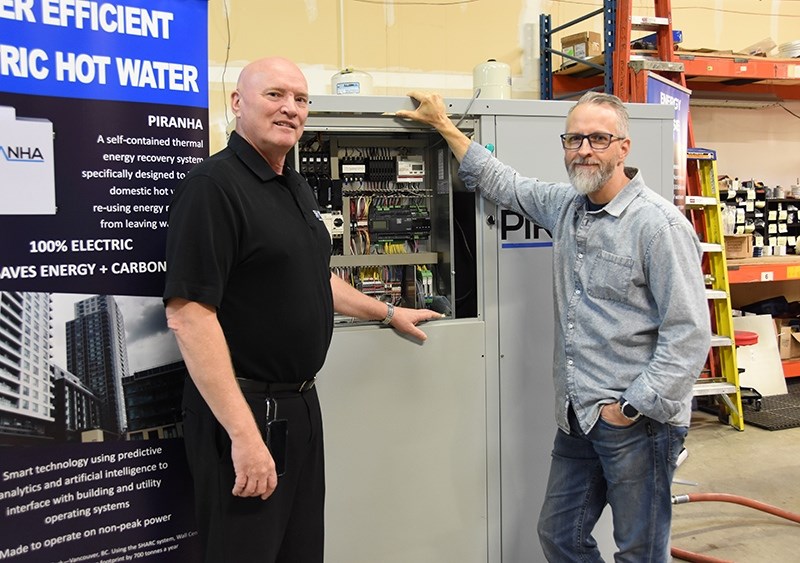Can a Tri-City green-energy technology company win a Shark Tank-like competition and rub elbows with the world’s biggest utilities?
That’s the hope of Lynn Mueller and his SHARC Energy Systems, which manufactures systems that can turn wastewater into heat.
The Port Coquitlam business has been selected to participate in an Incubatenergy Labs Challenge for a chance have its latest technology, the The Piranha HC wastewater heat recovery system, used by a major utility.
This year, the challenge will take place virtually because the conference, slated to be held in North Carolina, has been postponed due to COVID-19 coronavirus.
The Piranha HC captures heat from sewage wastewater to heat more water and Mueller, the company’s CEO, says the technology is receiving attention by those wishing to rely less on natural gas and use cleaner electricity, including developers, governments and utility companies.
If selected during the Electrification 2020 International Conference and Exposition in April, the SHARC system would be rolled out as a demonstration project with a major utility company.
“If we are in the top six, they would pay for a pilot project. The real benefit is just to be in front of every utility,” Mueller said. “We’re a little company from PoCo but we’re on the world stage as we will be front of 2,000 utility reps from around the world.”
Mueller said he believes the Piranha has a good chance to be selected because it uses artificial intelligence to enable utility companies to reduce the need for electricity at peak times. SHARC is one of 17 finalists selected from more than 130 applicants to compete for a paid demonstration project.
“I’m pretty confident we can end up with a paid demo,” Mueller said about the upcoming challenge, where companies pitch their product in a Shark Tank-like competition.
In recent weeks, SHARC has been fielding inquiries from a number of companies and agencies from around the world, including from B.C., where building code changes are requiring more energy efficiencies, Mueller said, prompting the company to look at expanding its manufacturing capabilities.
Recently, SHARC was touted for the use of a Piranha HC system in the Ella condo project in east Vancouver.



